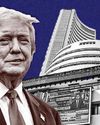The Indian Postal Service (India Post) has a famed history of 150 years.

Operating under the Ministry of Communications and Information Technology, it has touched the lives of millions of Indians as a carrier of mails, an agent for collection of money under various types of small savings deposit schemes, provider of life insurance cover under Postal and Rural Life Insurance (PLI and RPLI) and delivering various other services like remittances, sale of forms, etc.
The extensive network of more than 1.5 lakh post offices that link India’s geographical extremities (as against the approximately 22000 branched of SBI, the largest PSB ) earns India Post the distinction of being a service provider with an enviable reach to the grassroot level as a last mile connect. Out of the said network, about 90% of the post offices serve the rural and semi-urban areas of India. This huge network is manned by about 1.9 lakh departmental employees and 2.5 lakh Gramin Dak Sewaks who are largely the feet-on-the street.
Though Sher Shah Suri, the founder of Sur dynasty in the mid-sixteenth century is accredited with the initiation of the postal system in Indian subcontinent, it was institutionalised under British rule. Since then, the postal service has gradually grown to cover the length and breadth of the country, having divided the entire country into 23 postal circles and 49 zones. In a way, this logistical behemoth is capable of delivering services to the doorstep of the customer located at the remotest corners of the county.
This story is from the September 16-30, 2018 edition of BUSINESS ECONOMICS.
Start your 7-day Magzter GOLD free trial to access thousands of curated premium stories, and 9,000+ magazines and newspapers.
Already a subscriber ? Sign In
This story is from the September 16-30, 2018 edition of BUSINESS ECONOMICS.
Start your 7-day Magzter GOLD free trial to access thousands of curated premium stories, and 9,000+ magazines and newspapers.
Already a subscriber? Sign In

Bank of Baroda, Kolkata Zone organised Mega Kisan Melas in West Bengal
Bank of Baroda (BOB) organised Mega Kisan Mela at Konkalitala in Birbhum District of West Bengal on November 18, 2024 as a part of the 7th Edition of the Baroda Kisan Pakhwada (BKP).

Time-Bound Disposal of Cases to Expedite the Delivery of Justice and affordabe by all in India
The delay in the disposal of cases in Indian courts remains a significant hurdle to the nation's progress.

Dev Deepawali: A grand celebration of light, spirituality, and culture in Varanasi
The holy city of Varanasi, often regarded as India's spiritual and cultural heart, came alive with the splendor of Dev Deepawali on the sacred day of Kartik Purnima.

The life of Job 'Ye judge not the judgment of God' - Jesus Christ
The Holy Bible reveals through the life of Job how the Lord tests the righteous and that faith helps one to overcome life's adversities.

India has the highest potential for the garment industry, only a conducive government policy is required.
India's textile industry is poised for remarkable growth, with expectations to double its contribution to the GDP within the next six to seven years.

Global Public Debt may be worse than it appears, warns IMF
Global Public Debt Set to Exceed $100 Trillion, Warns IMF

The economic consequences of Trump's Presidency: A global perspective
One of the key economic factors contributing to the Democrats' loss in the US elections was the significant rise in inflation, which was initially triggered by the COVID-19 pandemic and exacerbated by the Russia-Ukraine war.

Challenges and Successes in West Bengal's Education Sector: A Comprehensive Overview
The education system in West Bengal, particularly in districts, villages, slums, and government institutions, reflects a blend of progress and ongoing challenges.

What India can expect from Trump's return
I may be too early to predict how Donald Trump's second term as president will impact the global oil market.

Stocks Surge Following Donald Trump's Election as 47th President of the USA
Stocks soared following the election of Donald Trump as the 47th President of the United States. Investors anticipated that the Information Technology (IT) sector would benefit from lower corporate taxes under the Republican regime, with IT stocks leading the rally.